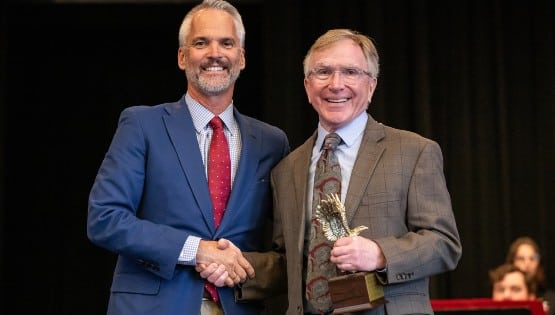
I notice two overall trends. First of all is what bad ideas were not adopted. The second is how easy it is for this, or any legislature, to make other people pay for the good the legislature wishes to do…that is, the notorious “unfunded mandates.”
Fortunately, several such mandates did not pass. One measure would have repealed the business, professional, and occupational tax. This is among relatively few sources of revenue for localities. Always remember, removing any source of local revenue can result in higher property taxes. No action can be a good thing.
Another bill (S1386) would have suspended state support for local and regional jail construction, surely a matter of note for us in Rockbridge right now. Both our senators, Creigh Deeds and Emmett Hanger, helped this idea bite the legislative dust, thereby keeping the door open for funding should we here pursue ideas of expanding our jail.
Also, funds continue to be available to matching local costs of the required wastewater treatment upgrades. Where they would come from became a question when the House veered from the original promised plan; and not having those funds would have meant our swallowing the state’s portion of $7.5 million. But on this, all’s well for now.
Another good thing: several provisions defer requirements that would cost money, thereby lowering expenses at least for a year or two. For example, HB2166 passed unanimously, delaying some requirements for graduation and school accreditation.
On the other hand, those unfunded mandates crept in, as they always seem to do—and with discouraging near-unanimity. HB2084 exempts pollution control equipment and facilities from local property taxes—a small loss of local revenue perhaps, but how they add up. So too with HB2583 which requires that no less than 10% of local government investment assets shall be placed in certain institutions. Since these institutions often pay out less, again localities lose a bit of income. Del. Ben Cline co-patroned this bill, which everyone then voted to pass. (At least it won’t go into effect unless ratified next year; so if you share my dim view of this idea, let your delegate and senators know.)
Another that sailed through is one I’ve mentioned before: requiring localities to exempt veterans who are 100% disabled from combat service from local property tax (HJR648, SJR275). I reiterate my profound respect and gratitude for these heroes of our nation. Yet, the idea has practical complications (why not widows/widowers? what of those who are only 95% disabled?). And, like other measures, it chips away at local revenues: Remember, removing any source of local revenue can result in higher property taxes. It passed unanimously and without objection from anyone. (At least the Assembly must give it another OK, and then we all vote on it.)
It’s the old story. Legislators come up with good ideas and then, not willing to raise taxes or spend money under their control, they pass the cost to someone else.
Yet individual politicians swear eternal hostility to unfunded mandates: Just ask them. They’ll tell you. And those who are the most opposed to them are often the same ones who pledge total, complete, 100 percent opposition to tax hikes.
But the localities which have to pay for these ideas must come up with the money somehow—which means cutting services or raising (ahem) taxes or rates.
And for legislators to pass bills that decrease the sources of revenue only makes the burden greater on those sources that remain.
As a result, those most against tax hikes are among those who make them inevitable. Their hands are clean, though, with the claim that the state managed to keep taxes the same.
Yeah, right. Whether you pay an extra dollar to the state or the city/county, you still pay.
What can be done? The governor must approve many of these measures. If you’re concerned, let him know. Since constitutional amendments need a second hearing, these can become an issue in this year’s campaigns, both for the governor and the House of Delegates. Ask candidates about where they stand.
Just remember: Adding requirements on localities, or removing any source of local revenue, can result in higher taxes or rates on those sources that remain. Let’s make sure they are really, truly necessary; and, if so, let those who approve the ideas take responsibility for them.
– Column by David Cox










